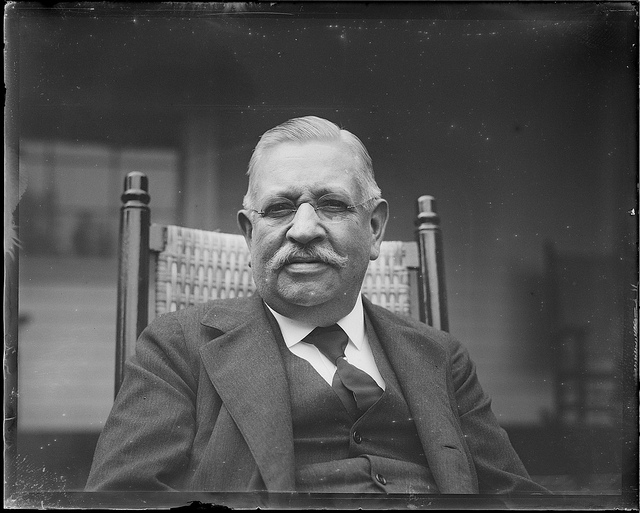“It is characteristic of the unlearned that they are forever proposing something which is old, and, because it has recently come to their own attention, supposing it to be new. Into this error men of liberal education ought not to fall. The forms and processes of government are not new. They have been known, discussed, and tried in all their varieties through the past ages. That which America exemplifies in her Constitution and system of representative government is the most modern, and of any yet devised gives promise of being the most substantial and enduring.
“It is not unusual to hear arguments against our institutions and our Government, addressed particularly to recent arrivals and the sons of recent arrivals to our shores. They sometimes take the form of a claim that our institutions were founded long ago; that changed conditions require that they now be changed. Especially is it claimed by those seeking such changes that these new arrivals and men of their race and ideas had no hand in the making of our country, and that it was formed by those who were hostile to them and therefore they owe it no support…But scholarship answered ignorance. The learned and patriotic research of men of the education of Dr. James J. Walsh and Michael J. O’Brien, the historian of the Irish American Society, has demonstrated that a generous portion of the rank and file of the men who fought in the Revolution and supported those who framed our institutions was not alien to those who are represented here…
“In these days of violent agitation scholarly men should reflect that the progress of the past has been accomplished not by the total overthrow of institutions so much as by discarding that which was bad and preserving that which was good; not by revolution but by evolution has man worked out his destiny. We shall miss the central figure of all progress unless we hold to that process now. It is not a question of whether our institutions are perfect. The most beneficent of our institutions had their beginnings in forms which would be particularly odious to us now. Civilization began with war and slavery; government began in absolute despotism; and religion itself grew out of superstition which was oftentimes marked with human sacrifices. So out of our present imperfections we shall develop that which is more perfect. But the candid mind of the scholar will admit and seek to remedy all wrongs with the same zeal with which it defends all rights…
“The long and toilsome processes which have marked the progress of the past cannot be shunned by the present generation to our advantage. We have no right to expect our portion something substantially different from human experience in the past. The constitution of the universe does not change. Human nature remains constant. That service and sacrifice which have been the price of past progress are the price of progress now…the evidence was never so overwhelming as now that men and nations must live rationally or perish. The defenses of our Commonwealth are not material but mental and spiritual” — Governor Calvin Coolidge, Commencement at Holy Cross College, June 25, 1919.

James Augustine Healy, valedictorian in the class of 1849, was the first black Catholic bishop in the United States. Two of his younger brothers attended the College as well.

Frank Waterman Stearns, long-time friend of the Coolidges, at his home in Swampscott. Many of his papers now reside in the special collections of Holy Cross College.

Reverend James J. Carlin, President of Holy Cross College when Governor Coolidge delivered this commencement address in June 1919. Carlin would see the College continue to grow during his tenure from 1918 to his departure in 1924, to take on work in the Philippines.

The Most Reverend Joseph N. Dinand, President of Holy Cross in the years leading up to the War, 1911-1918 and during most of Coolidge’s administration, 1924-1927. It was President Dinand who largely built up the College’s great library, which bears his name today.

Here is a scene from the commencement in 1923. When Governor Coolidge spoke to those gathered on these grounds five years before, the men of Holy Cross had already proven to be an expression of patriotic duty, as many of those who would have graduated sooner, were among the first to volunteer for military service. Not only this, however, the young men to whom Coolidge directed his address that summer of 1919 did not all spring from long-established families, but mirrored the rich differences and opportunities America had made possible for the most recent arrivals. While most of the young men Coolidge addressed were of Irish ancestry, students could also claim Italian, French, Slavic, and even Lithuanian roots. Coolidge, keenly aware of both the College’s excellent past and accomplished present, saw America in miniature. This great success was not an anomaly, it was the norm because here freedom and opportunity came not through ancestry or privilege but through diligence and perseverance, competence and ability. Having taken up the full burden of citizenship, the young men of Holy Cross demonstrated what it meant to know (as Coolidge would express it years later) the “high estate” of American citizenship, “the peer of kings.”

